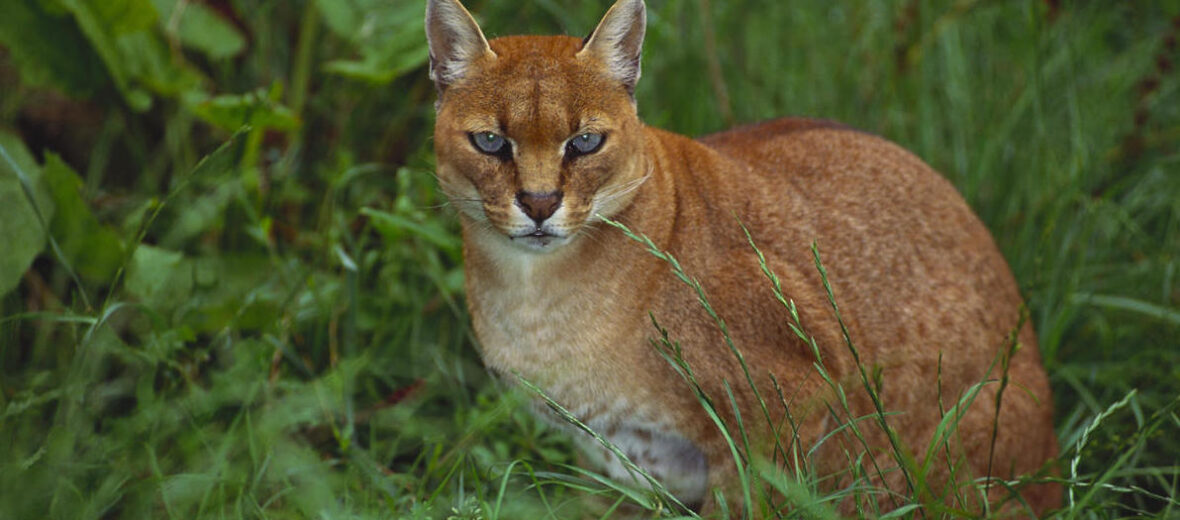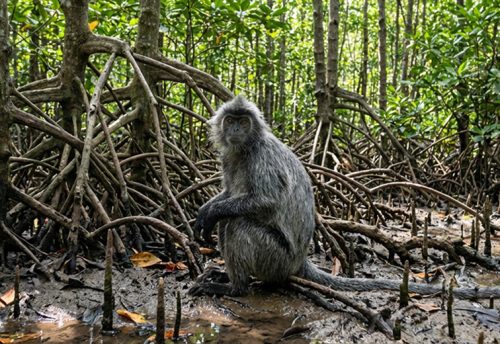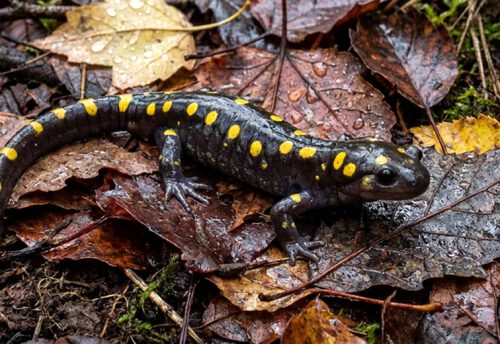
The African golden cat hails from equatorial Africa from western Sierra Leone to central Africa and even as far east as Kenya. Their preferred habitats are moist forests, freshly logged forests, mountainous regions of alpine moorlands, and also bamboo forests. Due to habitat destruction, hunting, and trapping these felines are listed as Vulnerable by the IUCN. Their populations are also, sadly, decreasing.
First the Stats…
Scientific name: Caracal aurata
Weight: Up to 23 lbs.
Length: Up to 2.6 feet, plus up to a 18 inch tail
Height: Up to 22 inches
Lifespan: Up to 15 years
Now on to the Facts!
1.) These cats can be found at elevations of up to 9,800 feet.
2.) Unfortunately for their numbers, pygmy tribal members will often use the tail of a golden cat for a good luck charm, to ensure a better hunt.
3.) Even though they are solitary, like nearly all other cats, they do come together to mate.
4.) A group of cats is called a clutter, pounce, destruction, or clowder.
5.) They are primarily nocturnal (active at night) and crepuscular (active at dawn and dusk). However, they have been seen hunting during the day (diurnal).
But wait, there’s more on the African golden cat!
6.) African golden cats tend to be very aggressive.
7.) Golden cats prey on hyraxes, duikers, monkeys, smaller forest antelopes, and sometimes birds and the occasional fish.
Did you know…?
When in captivity, African golden cat’s fur will often change from red to grey. This transformation typically takes place after about 4 months.
8.) Females birth up to 2 kittens after up to a 78 day gestation (pregnancy).
9.) Like other cats, the kittens are born altricial (blind and helpless).
10.) African golden cats are close relatives of caracals and servals.
But wait, there’s still more on the African golden cat!
11.) Sometimes known as the leopard’s brother, these cats have been known to not only inhabit the same territory as leopards, but also follow them around.
12.) Like all smaller cat species, they can vocally communicate via meowing, growling, and hissing. They will sometimes also produce a gurgling sound when other cats are nearby.
13. Even though they are agile climbers, these cats tend to be more terrestrial (spend their lives on the ground).
14.) Territory is marked via feces (poop) and urine (also known as spray).
Now a Short African Golden Cat Video!
Be sure to share & comment below! Also, check out the Critter Science YouTube channel. Videos added frequently!
Want to suggest a critter for me to write about? Let me know here.



